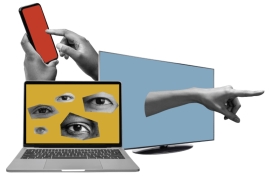Americans and ‘Cancel Culture’: Where Some See Calls for Accountability, Others See Censorship, Punishment
2021

Empirische Studien
Grundlagen und Begriffseinordnung
Psychologische Aspekte
Pew Research Center

